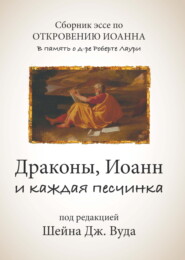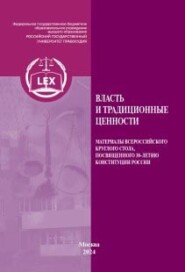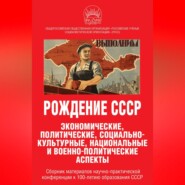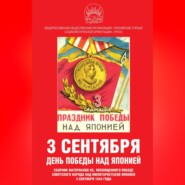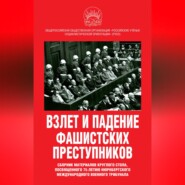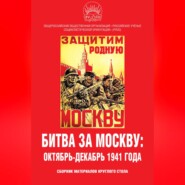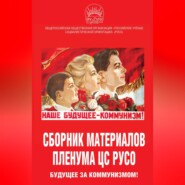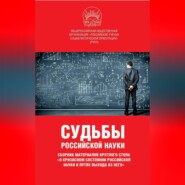По всем вопросам обращайтесь на: info@litportal.ru
(©) 2003-2024.
✖
Революции в России. Теория и практика социальных преобразований
Настройки чтения
Размер шрифта
Высота строк
Поля
1
See: Krausz T. Lenin on global history and the global historiography on Lenin. Lecture on the Fifth European Congress on World and Global History (Europen Congress European Network in Universal and Global History (ENIUGH)). 31 August 2017, Corvinus University, Budapest.
2
Lenin Collected Works (LCW). Vol. 27. P. 237.
3
Ibid. P. 238.
4
Ibid. P. 246, 248.
5
Ibid. P. 248–250.
6
Lenin Collected Works (LCW). Vol. 27. P. 254.
7
On this, see for example: Dmitrenko V.P. Sovyetskaya ekonomicheskaya politika v pervie godi proletarskoy diktaturi [Soviet economic policy in the first years of the dictatorship of the proletariat]. Moscow: Nauka, 1986. P. 21–29.
8
Production for the market and directly for state requirements raised the issues of disciplined work and remuneration. The Council of Labor Unions introduced strict rules of conduct at state-owned enterprises in April 1918, and after the October Revolution performance-based pay replaced work hours–based pay, meaning that a quarter of the workers at the companies in Petrograd received performance-based pay by July. LCW. Vol. 27. P. 583. See also: Szamuely L. Az elso szocialista gazdasаgi mechanizmusok. K?zgazdasаgi еs Jogi K?nyvkiadу. Budapest, 1971; Krausz T. Szocializmus-kеpek a huszas еvekben. Аtmeneti korszak еs szocializmus // Vilаgossаg. 1984. № 4. P. 202–210.
9
LCW. Vol. 25. P. 330.
10
Ibid. Vol. 27. P. 259.
11
Bukharin N., Preobrazhensky E. The ABC of Communism / Translated from the Russian by Eden and Cedar Paul. Harmondsworth, Middlesex: Penguin Books, 1969. P. 209; in Russian: Bukharin N., Preobrazhenskiy Y. Azbuka kommunizma. Petersburg: Gosizdat Peterburg, 1920. P. 123–125.
12
LCW. Vol. 30. P. 506.
13
LCW. Vol. 25. P. 471.
14
Lenin could not have known that under the decades of “state socialist” and “existing socialist” rule hordes of writers who considered themselves Marxists would mix-and-match state and social property together – arm in arm with the (neo)liberals and neoconservatives. Not to mention the false explanations that have come to the fore since the collapse of state socialism, the most typical and common of which is state socialism being called “communism.”
15
See: Lenin’s speech at the 11th Congress in March 1922 // LCW. Vol. 33. P. 279.
16
Studies, books, and publications of sources related to the NEP can hardly be followed in recent years. See among more recent works the book under the name of A.N. Yakovlev, and written by colleagues, which contains an extensive large collection of material, Rossiya nepovskaya (Moscow: Noviy hronograf, 2002).
17
“The cooperatives must be granted state loans that are greater, if only by a little, than the loans we grant to private enterprises.” (The cooperative order as socialism.) “But it will take a whole historical epoch to get the entire population into the work of the cooperatives through NEP.” See: Lenin V.I. On Cooperation // LCW. Vol. 33. P. 469–470.
18
Ibid. P. 472–473.
19
LCW. Vol. 33. P. 474.
20
Ibid. P. 96.
21
Such a historical interpretation of Lenin can be found in a number of recent publications, among them: Burtin Y. Drugoy sotsializm / Almanakh “Krasniye holmi”. 1999. P. 411–511; as well as Ivanov Y.M. Chuzhoy sredi svoih: Posledniye godi zhizni Lenina. Moscow, 2002.
22
Two of my works, both in English, address the transformations “market socialism” went through over historical time. See: Krausz T. Stalin's socialism. Today's debate on socialism: theory, history, politics // Contemporary politics. Vol. 11. № 4 (Dec. 2005). P. 87–106; Krausz T. Perestroika and the redistributation of property in the Soviet Union: political perspectives and historical evidence // Contemporary Politics. Vol. 13. № 1 (March 2007). P. 3–36; as well as, in Hungarian: Krausz T., B?rо Sz. Z. A peresztrojka еs tulajdonvаltаs. Politikai koncepciоk еs t?rtеnelmi valоsаg // Peresztrojka еs tulajdonаthelyezеs. Tanulmаnyok еs dokumentumok a rendszervаltаs t?rtеnetеbol a Szovjetuniоban (1985–1991). Budapest: MRI, 2003. P. 52–102; Krausz T., T?to L. Vаlasz?ton [Crossways] // Politikatudomаnyi F?zetek. 1998. № 7.
23
See: Mеszаros I. Beyond Capital. London: Merlin Press, 1995. P. 823–850.
24
Apart from Istvаn Mеszaros’s work, this tradition is also honored in part by the Trotskyist heritage in Western Europe, in part by the Russian “self-governors” who are gathered largely around the journal called Alternativu, which is related in its positions to the Hungarian journal Eszmеlet. See also: Krausz T., T?to L. ?nkormаnyzаs vagy az elitek uralma [Self-government or the reign of the elites]. Budapest: Liberter Kiadо, 1995 and Бllamszocializmus. Trotsky, who defended state property as the precondition of socialism even in the 1930s, was later the recipient of sharp criticism from Marxists as well, for becoming a protector of Stalinism. These critics forgot that Trotsky’s precise notion was that it will be easier to socialize Soviet state property in a “revolutionary turn”, than if the bureaucracy and capital alienates state property from those who created it by way of private expropriation. For more on this, see: Krausz T. Szovjet Thermidor: a sztаlini fordulat szellemi elozmеnyei (1917–1928). Napvilаg, 1996. P. 227–230.
25
Ленин В.И. ПСС. Т. 39. С. 15. [Электронный ресурс]. URL: http://www.uaio.ru/ vil/39.htm#psoder (дата обращения: 01.10.2017).






